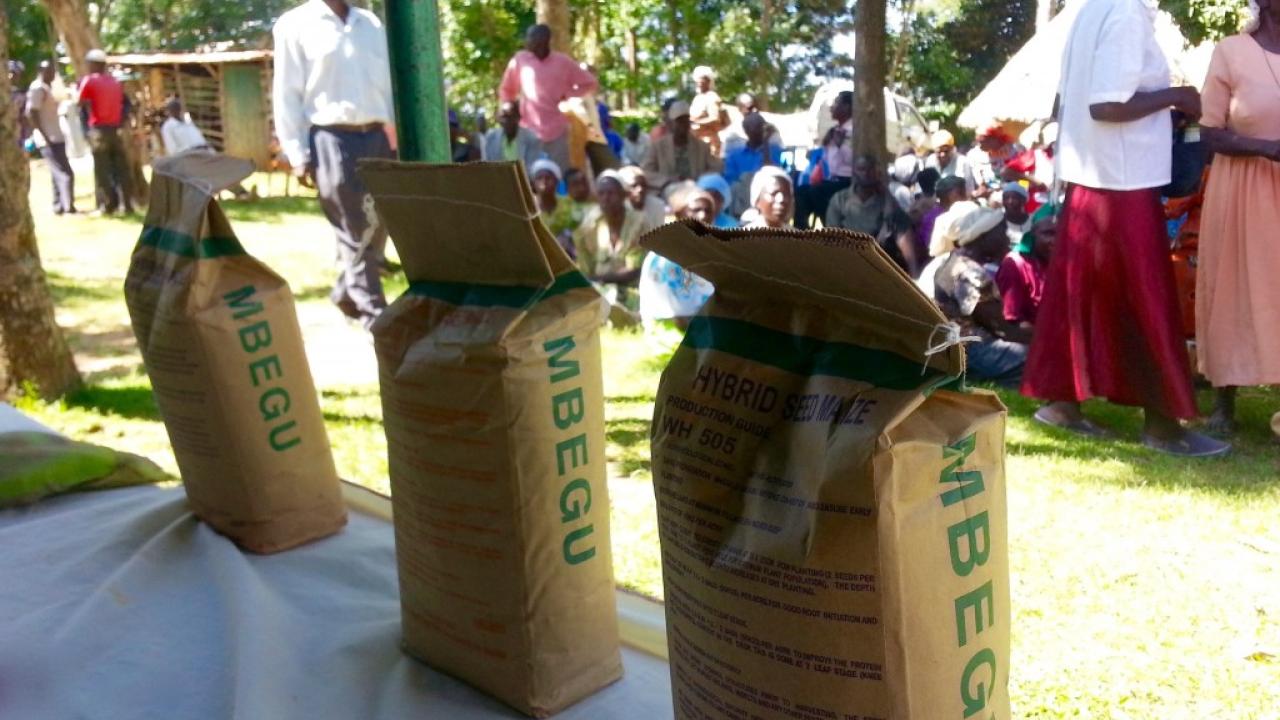
Unlike many parts of sub-Saharan Africa, hybrid seed adoption rates amongst Kenyan maize farmers are relatively high, reflecting decades of efforts by the Kenyan government and Kenya Seed Company. In the mid-1990s, the government of Kenya began to slowly liberalize the domestic seed market. Western Seed Company, an early entrant in the newly opened market, released its first commercial maize varieties in 1999. Its varieties quickly garnered attention by out-yielding existing Kenya Seed varieties by some 30 percent, especially in the mid-altitude regions that are home to many small-scale Kenyan farmers.
Project overview
Lead PI: Michael Carter, UC Davis
Partners: Tegemeo Institute of Agricultural Policy & Development, Western Seed Company, Acumen
Region: Kenya
Timeline: 2013-2016
Funding: $431,030
Commodity: Maize
AGRA and others have invested heavily in seed systems throughout sub-Saharan Africa with the expectation that new market players like Western Seed Company can create new prospects for growth throughout the region, especially for the small-scale farm sector. The model is clearly replicable, but the key question is whether it really works and adds value to what can be achieved by multi-national and other traditional market participants.
Project Summary
The Feed the Future Innovation Lab for Assets and Market Access will build on research funding already received from the Acumen Fund to evaluate the impact of Western Seed Company’s (WSC) hybrid maize program on the welfare of smallholder farmers in Kenya’s mid-altitude regions. The project will examine two key issues: the effectiveness of a local seed company in developing technologies fine tuned to the local agro-ecological environment, and the impact of relaxing liquidity constraints on the poverty-reduction potential of new agricultural technologies.
This locally based and locally focused seed company is currently expanding into new areas, powered by recent infusions of venture capital. By collaborating closely with WSC, the research team will exploit this geographic expansion with a two-year randomization design in parts of western and central Kenya, creating well-defined treatment and control groups. The impacts in these two regions to be different. In particular, in the poorer western region farmers are unlikely to reap the full benefits of WSC technologies. The project will relax liquidity constraints for some of these farmers by providing fertilizer vouchers, randomized at the household level.
Anticipated Impacts
The proposed research exploits the opportunity created by the rapid expansion of WSC’s capacity to create well-defined treatment and control groups. The project also complements the work being done by the Kenya USAID mission, such as the Kenya Maize Development Program. The on-the-ground players, which include WSC itself as well as its impact investors, are keen to understand the impacts of WSC’s hybrid maize on the local agro-ecological environment.
